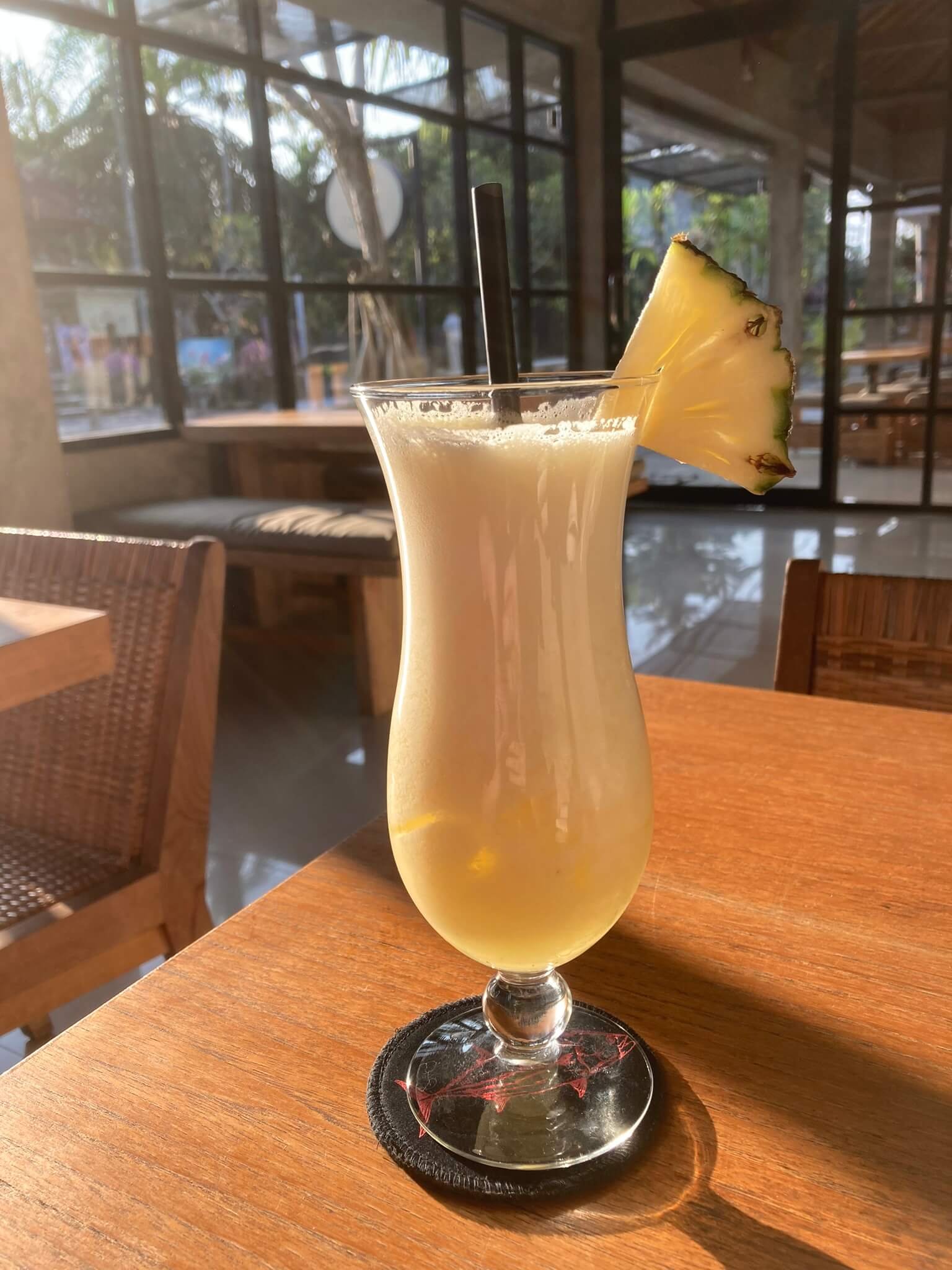Long-term travel on a low budget - A complete guide
Hi! If you’re new here: I’m a digital nomad working and traveling around the world. In the past year, I’ve spent time in Bali, London, Lisbon, Sweden, Palermo, and Vienna. And the best part? I did all this with a budget of 800 to 1.000 euros per month! And that includes everything: flights, accommodation, food, and fun. Want to know how I did that? Let’s dive into it.
Budgeting: the cornerstone of personal finance
First, let’s shout out some praise for the art of budgeting. Budgeting is the cornerstone of every good personal finance habit. I’m a firm believer anyone can take control of their finances and turn their life around, but it will take focus and sacrifices.
So, what is budgeting? Budgeting is understanding what comes in and what goes out. Is your bank account empty at the end of the month and you got no idea where it all went? Pump the breaks and start budgeting immediately. Track your income and categorize everything you spend. There are hundreds of rules on what the “best” way to budget is, but the basic rule is the same: don’t spend more than you earn.
The same applies to budgeting for long-term travel. My goal is to work-travel budget neutral, which means that when I spend a month abroad, then I must earn at least all my travel expenses + my regular salary in that month. Or the month before, because of course I also want to enjoy the new place abroad and not spend every minute inside grinding and hustling. Nobody wants to think about money when they’re traveling and having fun, so make sure you create a budget beforehand and stick to it!
Find the best transportation + accommodation combination
When you research digital nomads and working abroad, you come across the term cost of living (COL). Southeast Asia and Latin and South America are known for their very low cost of living, which makes it attractive to a lot of expats. But the cost of living isn’t everything, you also need to get there. My home base is in Europe, so flights to Southeast Asia and America are expensive!
The biggest part of your budget will go to transportation and accommodation, so focus your efforts on those two. Finding that perfect combination of low transportation and good accommodation makes or breaks your stay abroad. Bali was my very first long-term stay abroad. Let’s break it down:
Flights AMS – BALI: € 677,90
Train home from the airport: € 19,-
Airbnb Canggu: € 496,17
Airbnb Ubud: € 399,-
Two separate hotels for daytrips: € 63,53
This makes for a total of € 1.655,60 euro for three months, which translates to circa. € 550 per month. That meant that my biggest costs were well below my intended budget of € 1.000,- per month. Even though my flights were expensive, the cheap accommodation more than enough made up for that. Lisbon was exactly the opposite: my flight was only € 165,87, but my accommodation for one month was € 598,-. Mind you, that was during high tourist season in the middle of summer, so that was a good bang for your buck.
Sometimes your budget will allow for a private villa with a swimming pool, other times you’ll have to share with others at a guesthouse. (Sometimes guesthouses include fur babies. I highly suggest going for guesthouses with fur babies). Budget-wise doing Interrail in Sweden was an excellent decision. There are more than enough options out there for you, but it will take some research to find what fits your budget.
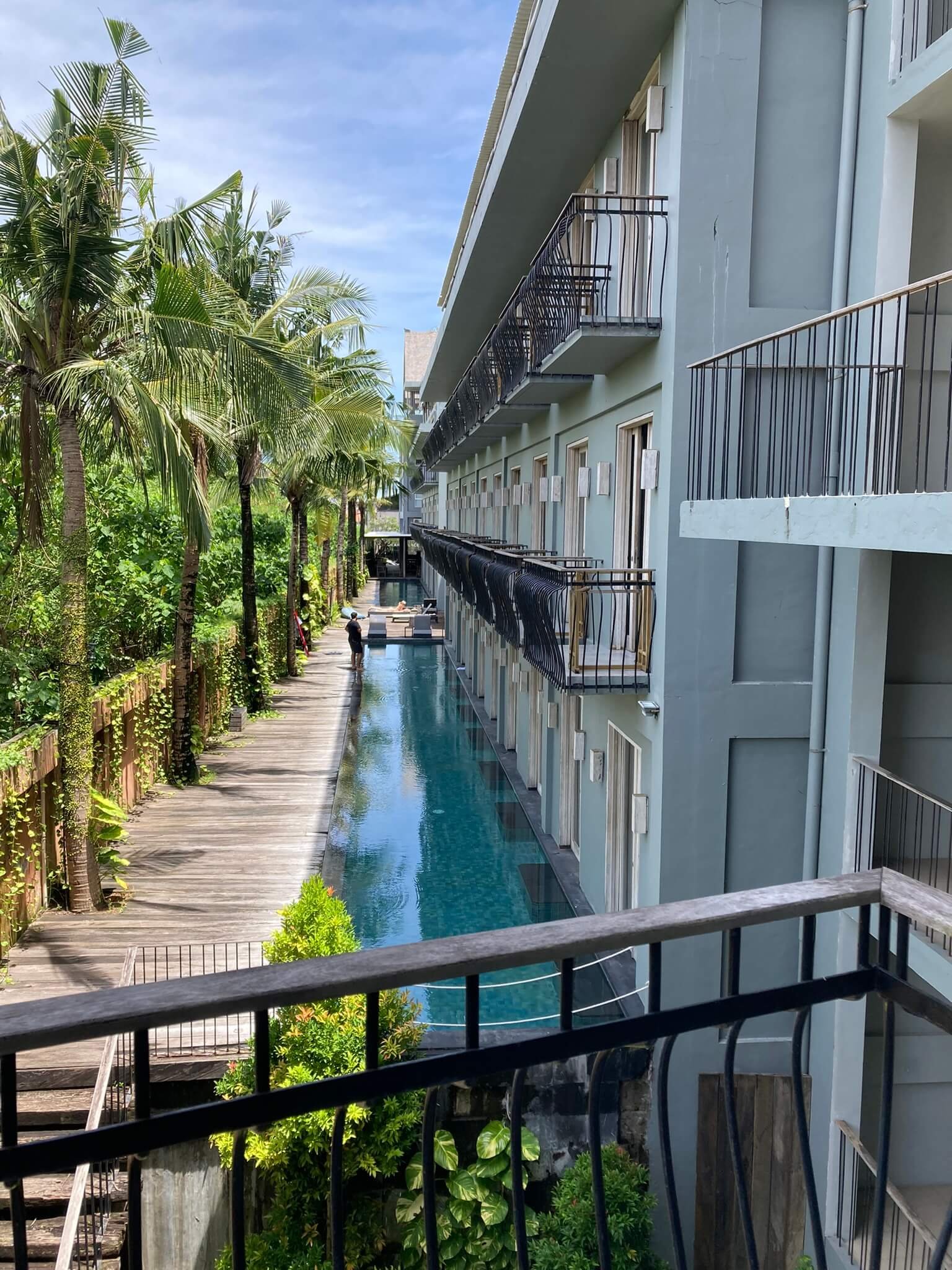
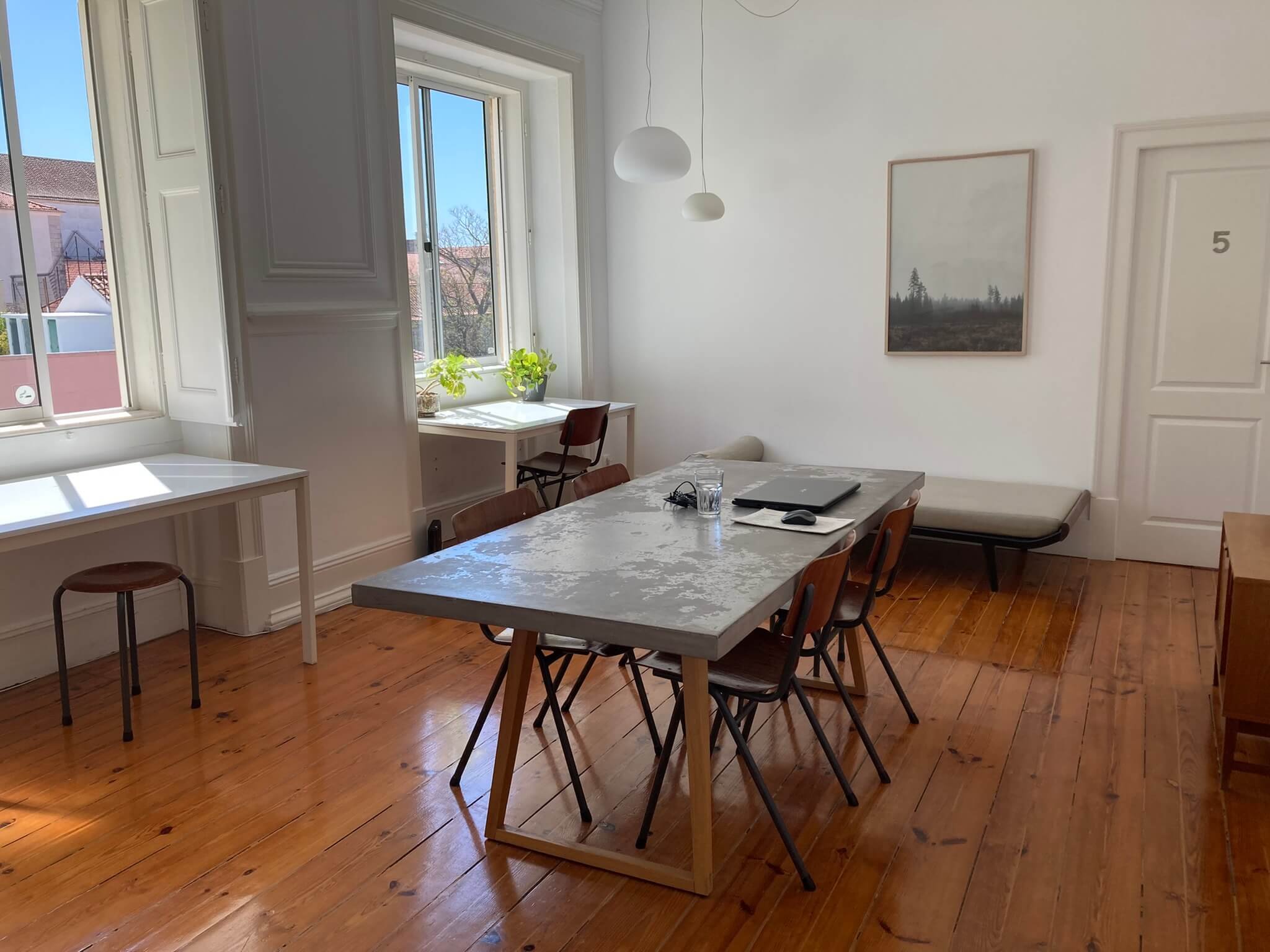
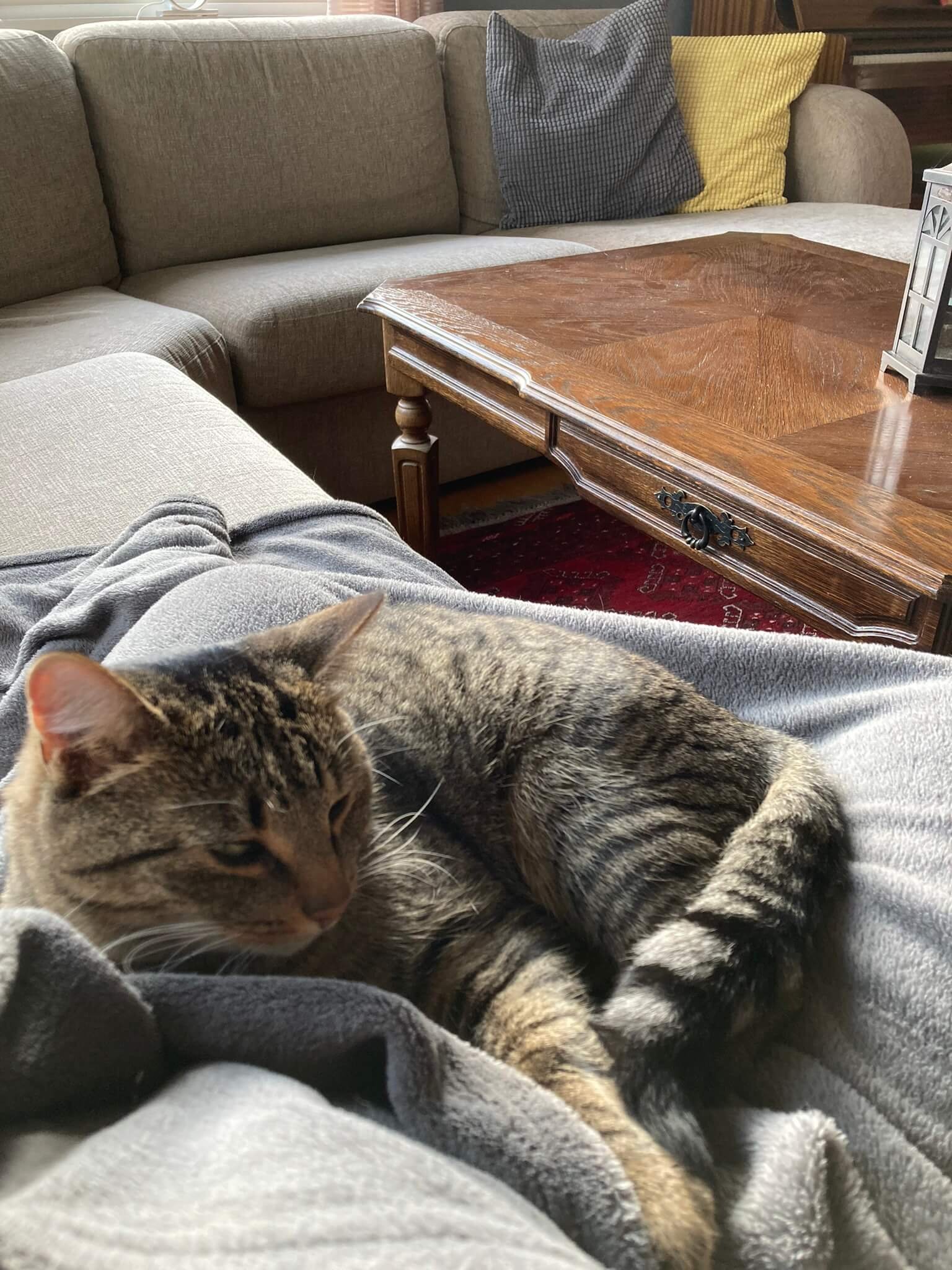
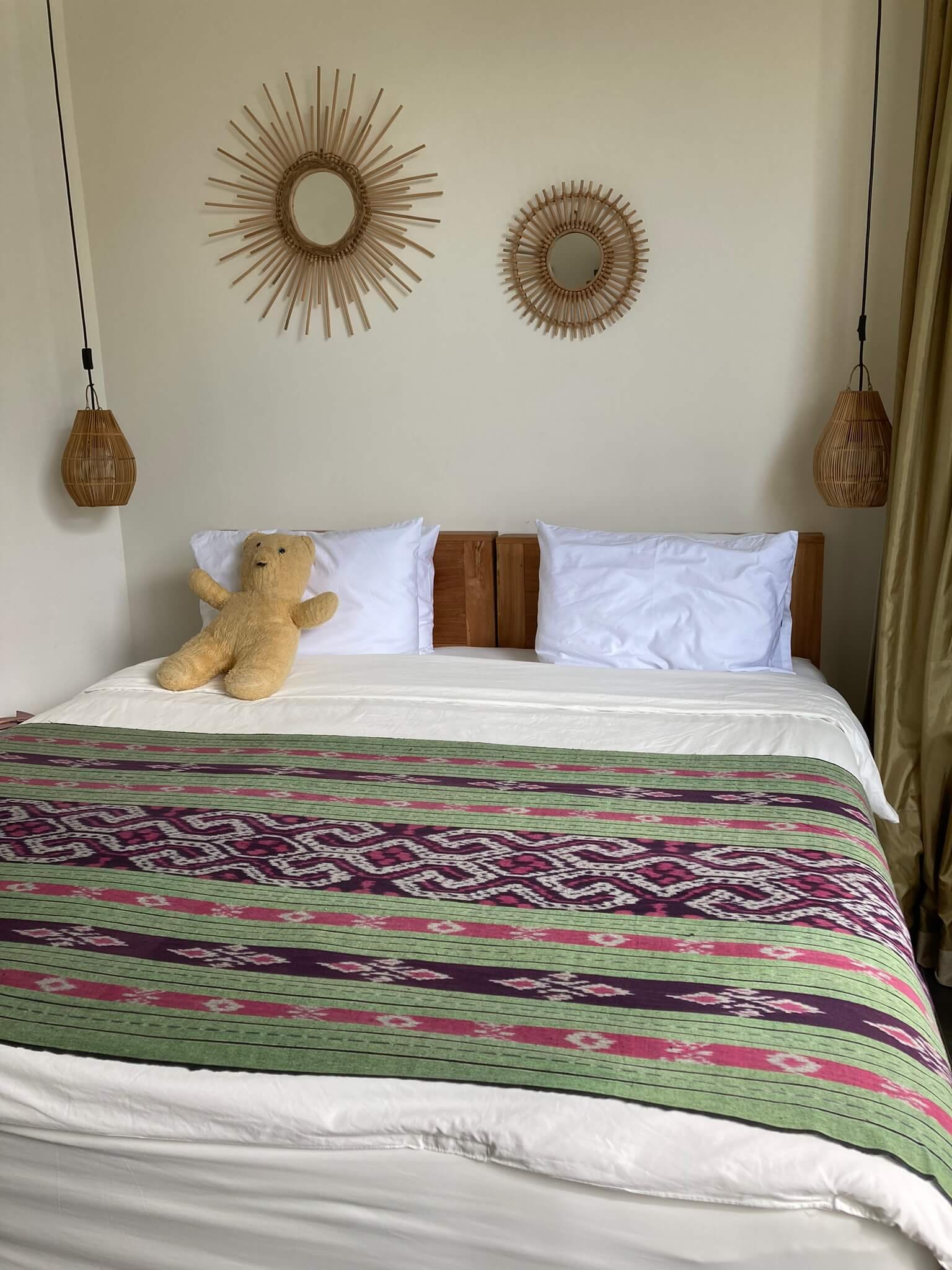
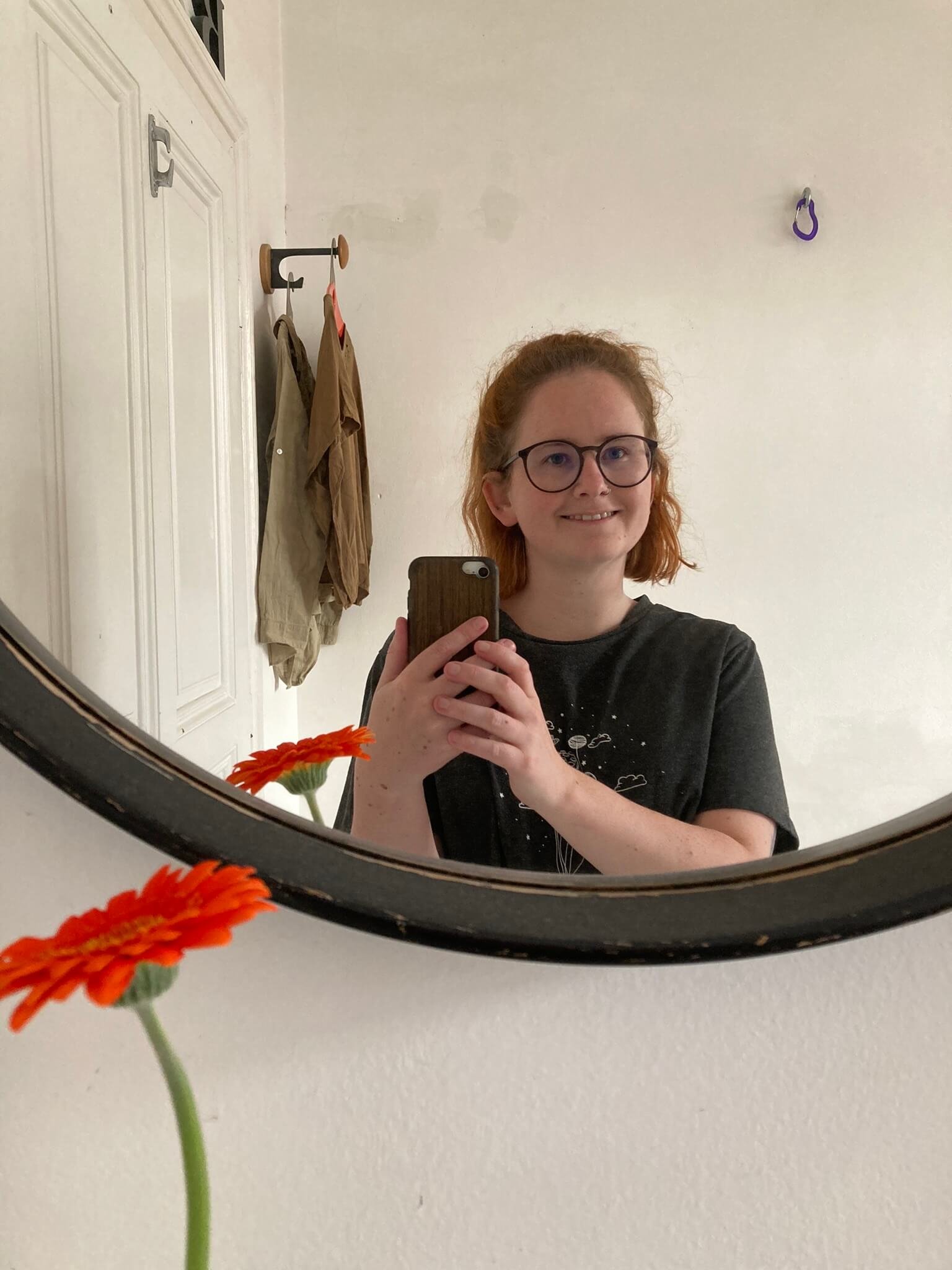
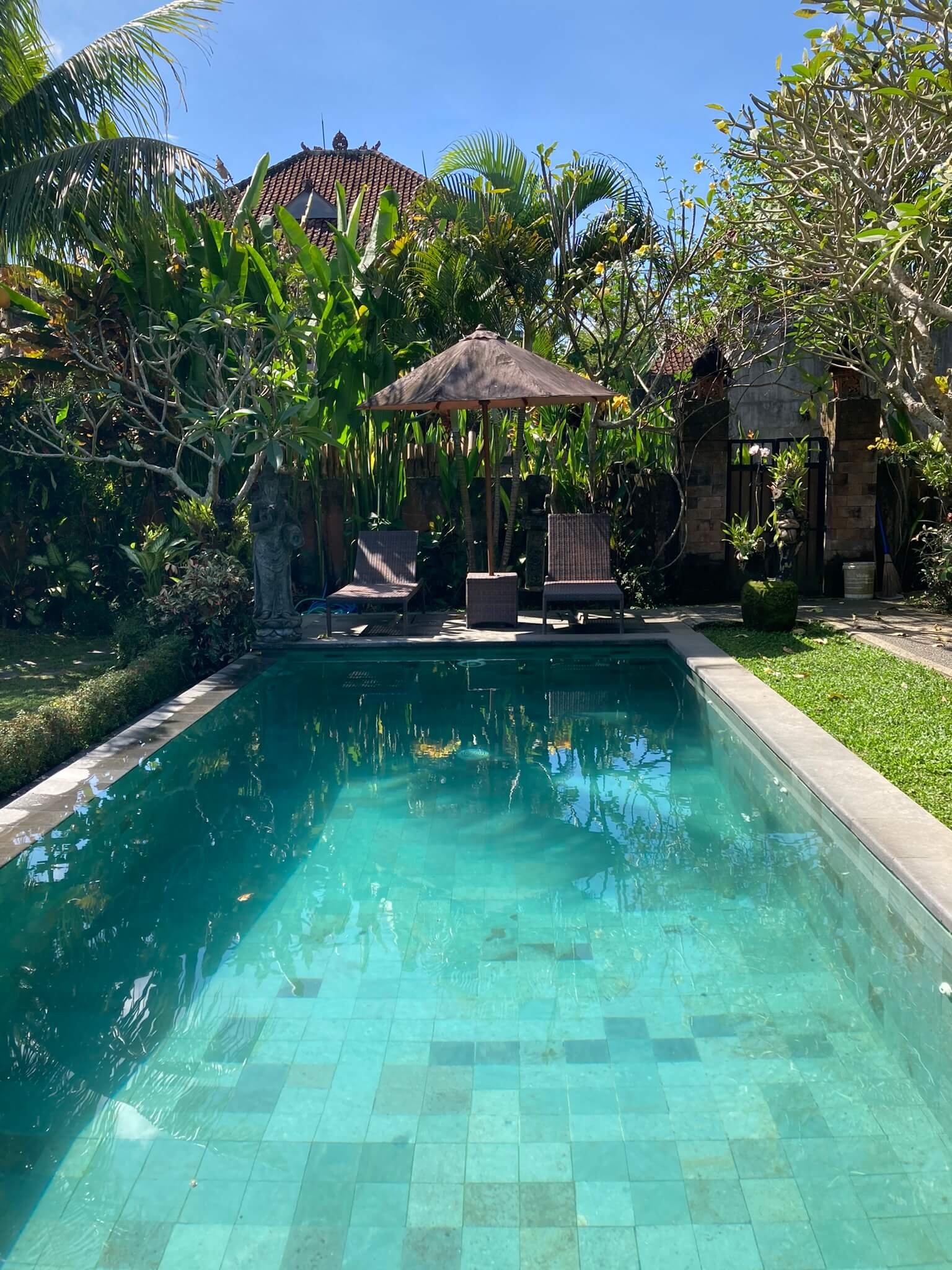
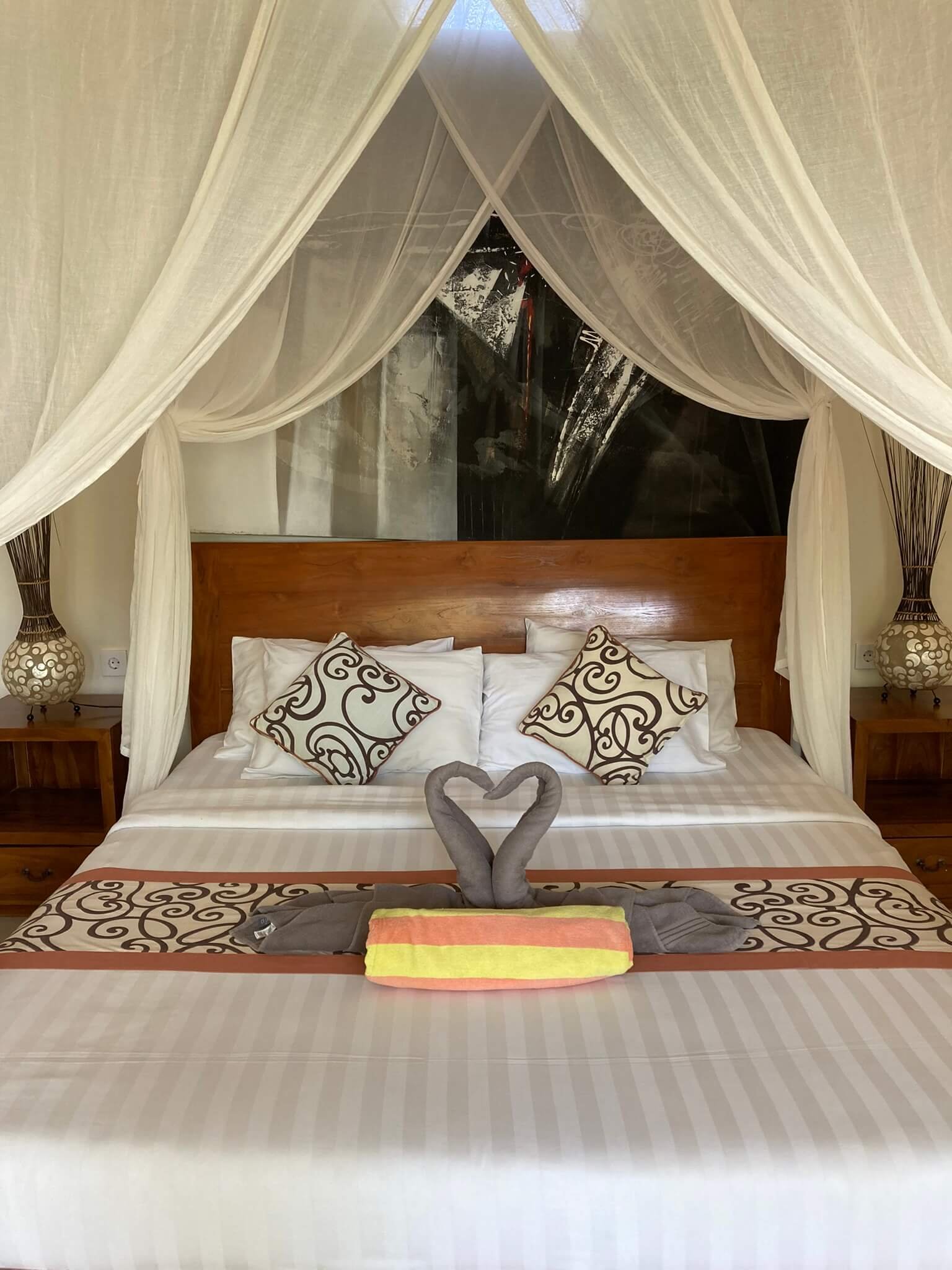
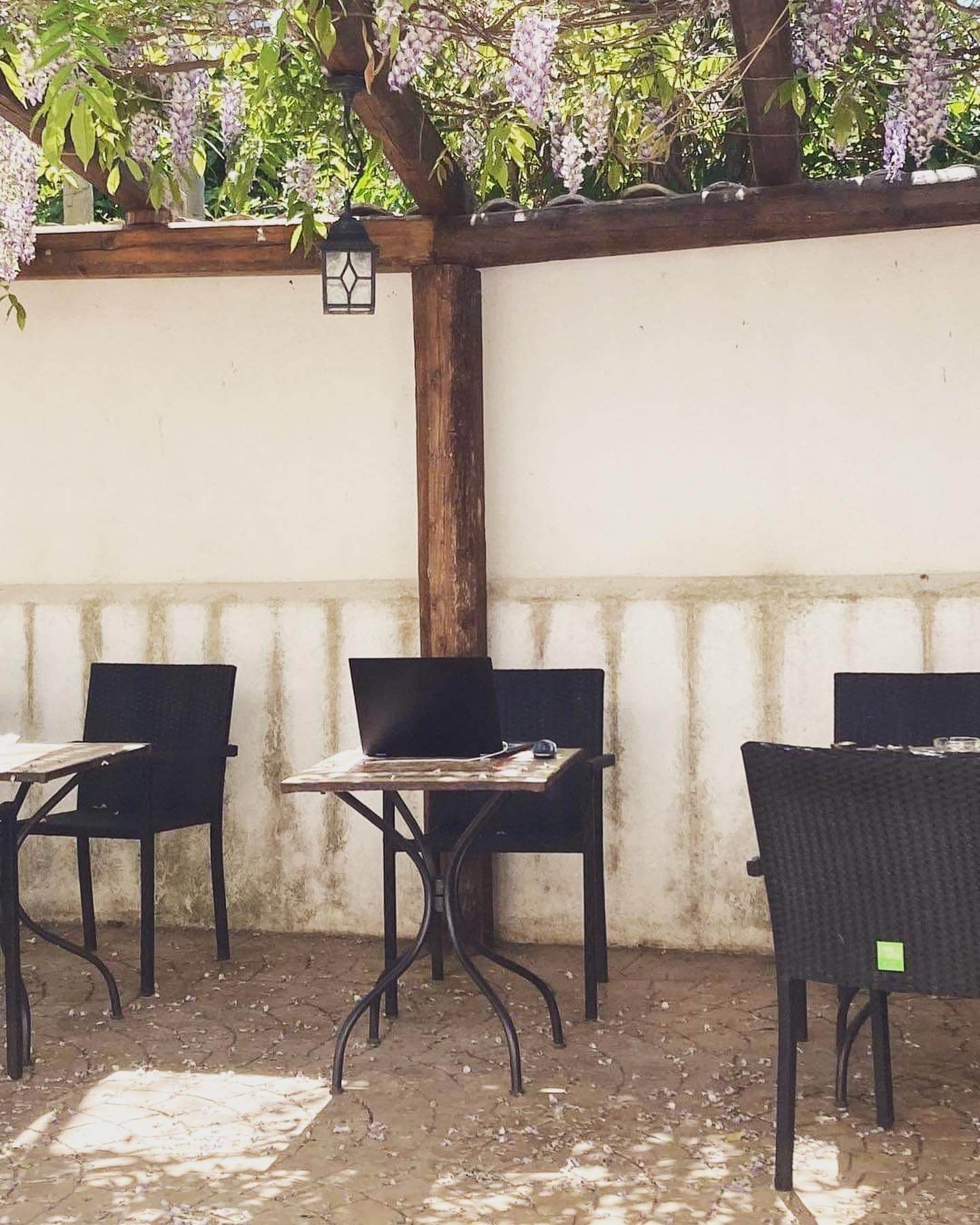
Don’t forget hidden expenses
I left for Bali in March 2022, right as the island was coming out of lockdown. When I flew in, visa on arrival wasn’t available yet, which meant I had to get an official visa. On top of that, I needed three PCR test. Luckily, the whole PCR tests is (hopefully!) over, but visas are something you will always encounter when traveling, and the cost can up rather quickly.
Are you a slow traveler? Then you’ve probably heard about visa runs. Most countries have a maximum number of days you can stay in that country. If you wish the stay longer in said country, you’ll probably have to do a visa run, which basically means leaving the country for a few days and then coming back.
NB: Europe has a 90 days in any 180-day period rule! Spending a quick weekend in London does not reset the clock to zero days as it does in Bali. This rule applies to any country in the Schengen area, so 30 days in Paris + 30 days in Lisbon + 30 days in Rome is your absolute limit.
Food: the ultimate budget killer
My secret weapon? Saving money on food. I’m a very picky eater, especially in an unfamiliar country. Usually, I’m a bit pessimistic about capitalism and globalization, but there is one good thing with all that: they have Kellogg’s Corn Flakes, Pringles, and Oreos in every part of the world.
I’m not saying you should survive on cornflakes, sour cream and union ships, and Oreos for three months but cooking for yourself instead of eating out every day will save you a massive amount of money. When you’re at home, you don’t eat out every day, do you? (If you do, this website is not for you.) Live abroad as you’d live back home, and you’ll be surprised how much cheaper traveling can be.
When it comes to food there is one golden rule: live like a local. Do street food (not in Bali!), go to local markets, and shop at grocery stores instead of eating out. Of course, eating out in Bali is a lot cheaper than in Western Europe, so adjust to the situation. Also, drinks have a massive impact on your budget. I’m one of those unicorns who never drinks on trips, so that’s not so much an issue for me, but if you like a drink, calculate that into your budget.
Pro tip: download the Too Good To Go app immediately. Too Good To Go is an anti-food waste app that allows you to buy almost-expired food from grocery stores at a discounted price. Yes, it can be a bit of hit-or-miss because you never know what you’ll get and if your alone you’ll never be able to eat everything before it actually goes to waste, you’ll save so much money trying this out. And it’s not only grocery stores. A lot of bakeries are affiliated with the app, and you’ll get mountains of pastries, bread, and cookies for basically next to nothing. If you do like to eat out, there are a lot of cities where the app is also popular with restaurants, so you can get a restaurant meal at a discounted price.
The fun factor: that’s up to you
The biggest factor in this whole thing is the fun factor: what do you do with your free time? There is a very wide spectrum here: from free walking tours and site visits to museums to exclusive yacht trips. I hope I don’t have to explain that doing an exclusive yacht trip or booking private tours has a much bigger impact on your budget than spending an afternoon in a free museum.
But you don’t want to miss out on experiences because you’re holding on to your budget too strictly. Always assume you are never coming back to a place ever again, so what are the things you absolutely want to do? Do them, no matter the cost. Do be sensible, though. A group boat trip will be a lot gentler on your budget than a private yacht.

